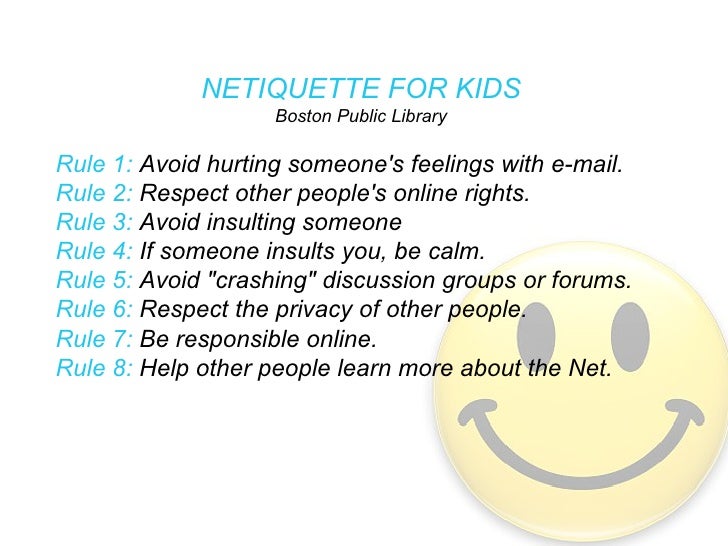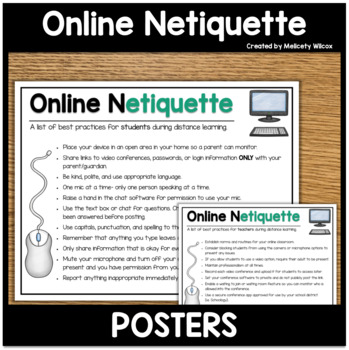

If comfortable, consider turning on your webcam for face-to-face interactions: so much of communication is seeing and responding to people’s faces. Mute your microphone when you aren’t speaking to the class, so that others aren’t distracted by outside noises. Make sure you are in a quiet space for the live class, so that you and others can listen without being distracted by background noises. In chats and discussion forums and synchronous sessions, don’t do/say anything you wouldn’t be comfortable saying/doing in front of your grandparents/parents and/or other family members. Remember that everything you do online leaves a permanent record. Be mindful that professors and students may be in different time zones, and that it may impact the length of time needed to respond to comments and questions. Avoid using sarcasm in an online setting as it can easily be misinterpreted. If you’re planning on using emojis in your comments, stick to simple smiley faces and be sure to explain what you mean in words so that everybody understands. Avoid writing in all caps as it is often interpreted as yelling and may cause conflict. Netiquette rules for students full#
Write in full sentences and avoid using slang that other students may not understand. Other Useful Tips for Practicing Good Netiquette the issue,” and not “me vs them ” in other words, focus on the idea(s), not the person communicating the idea. Be mindful that others may have a difference of opinion: If you disagree with something that was posted, remember to be respectful in your reply. Stay on topic: Stick to the discussion topic and avoid going off on tangents. If possible, get someone else to read it before you post it to ensure it comes across how you mean it to. Check your tone of voice: Read your comment out loud and be mindful of how it may sound to others who are reading it. If you wouldn’t say it in person, it’s best to reword, and rethink your comment. 
Think before you post: Would you say this to someone if you were having this conversation face to face? How would you react if someone else posted this comment? Commenting online can give a false sense of security.To realize those benefits, everyone in the group must feel respected and safe. Online discussion groups are most commonly used to develop critical thinking skills, foster innovation, and facilitate learning. Appropriate Online Behaviour in Discussion Forums We are committed to ensuring a respectful and engaging online community. The Office of Student Affairs would like to remind all students that Carleton’s conduct policies and students’ rights and responsibilities also apply to online communication. Carleton University is committed to providing a living and learning environment that promotes student success inside and outside of the classroom.






 0 kommentar(er)
0 kommentar(er)
